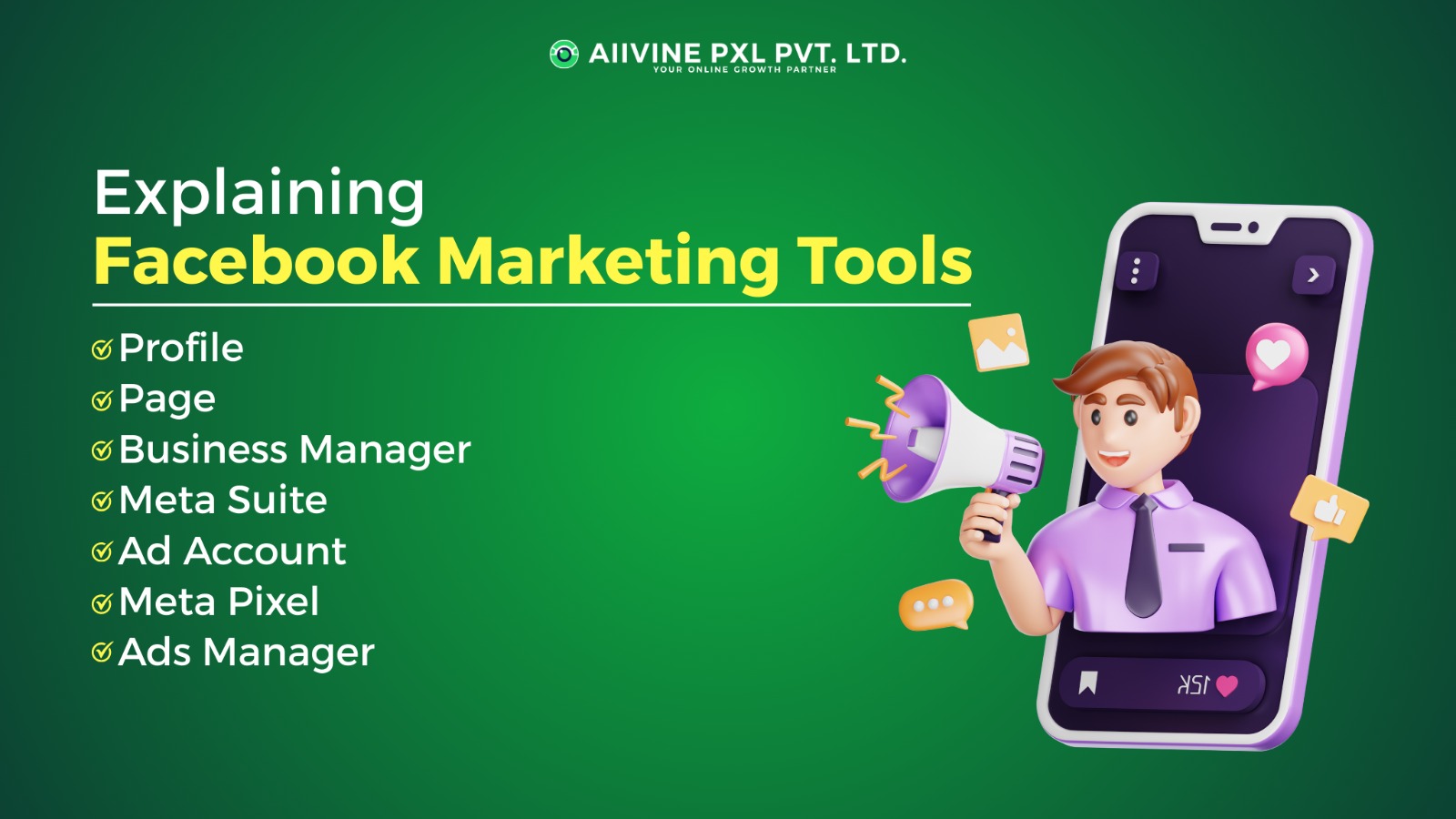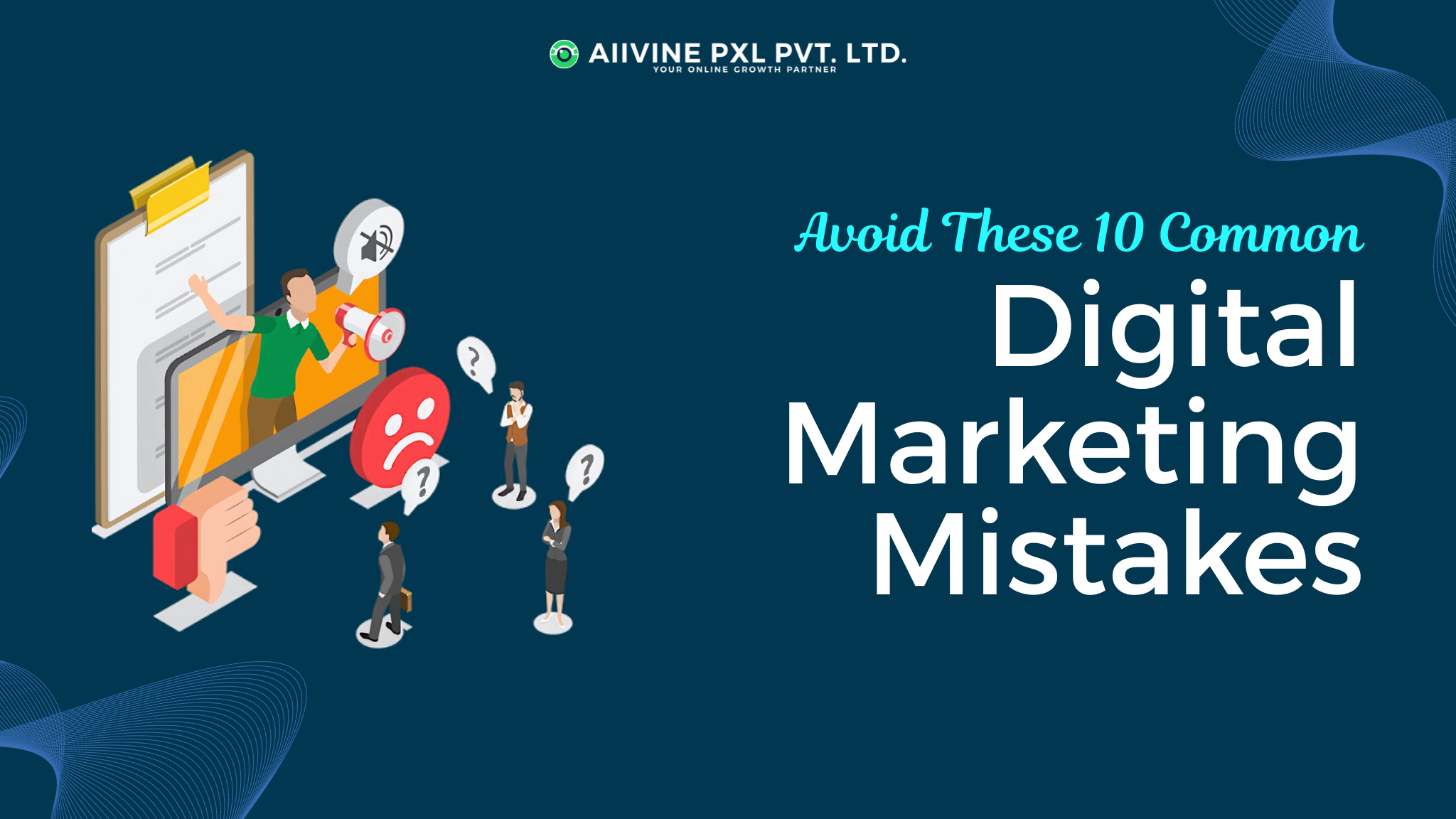Introduction
If you're running Facebook or Instagram ads, or planning to, one thing can trip you up fast: understanding the tools. You might hear terms like Business Manager, Pixel, Ad Account, or Meta Suite — but what do they actually mean? And how do they all connect?
This blog is your detailed, simplified, and real-world guide to understanding all key Facebook marketing tools — not just with definitions, but with structure, real-world analogies, and use-case breakdowns by business type.
Let’s break it all down like you’re setting up a digital office. Each entity has its role — and setting them up right saves you from ownership confusion, access issues, and ad performance problems later.
1. Facebook Profile – The Personal Key to Access Everything
What It Is: A Facebook Profile is your personal identity on Facebook. It’s the starting point. You must have a Profile to access any business tool — Page, Ad Account, or Business Manager.
Real-Life Analogy: Think of it as your employee ID. It gives you access to the office. Without it, you can't get in.
Important Notes:
- One person can only have one Facebook Profile (against policy to have multiple).
- A Profile can be given admin/employee access to multiple Business Managers, Pages, and Ad Accounts.
- NEVER run ads directly from your profile.
Best Practice: Use your profile to create Business Manager and own assets. Always use 2FA (two-factor authentication) for security.
2. Facebook Page – Your Business’s Public Face
What It Is: A Page is your business identity on Facebook or Instagram. It’s what users follow, engage with, and where your ads will appear "from."
Real-Life Analogy: Like your reception area. People walk in, see your branding, interact, and ask questions.
Important Notes:
- Required to run any ad (you can’t run ads from a profile)..
- Can connect to Instagram for cross-posting and ads.
- Multiple people can be given Page roles (admin, editor, advertiser, etc.).
Best Practice: Create the Page from your own profile or Business Manager & Assign at least one backup admin.
3. Business Manager – The Digital Office Building
What It Is: Business Manager is the control center that organizes all your business assets: Pages, Ad Accounts, Pixels, Catalogs, and People.
Real-Life Analogy: Like your business office. You decide who enters, what they can access, and what departments they can manage.
Why It Matters:
- Prevents personal ownership confusion.
- Securely shares assets with employees, agencies, or partners.
- Centralizes asset management for multiple brands or clients.
Structure:
- 1 person can create 2 Business Managers.
- 1 Business Manager can own multiple Pages, Ad Accounts, and Pixels.
Best Practice: Always create Business Manager first before creating other assets. & Use it to assign assets instead of giving people direct ownership.
4. Meta Business Suite – The All-in-One Management Dashboard
What It Is: Meta Business Suite is a user-friendly dashboard to manage your Facebook and Instagram business activities in one place.
Real-Life Analogy: Like your office dashboard — see messages, analytics, posts, calendar, and basic ad performance.
What You Can Do:
- Schedule posts and stories for Facebook/Instagram.
- Respond to messages/comments.
- See performance insights.
- Create basic ad campaigns.
Limitations:
- For detailed ad setup and analysis, use Ad Manager.
- Less granular than Business Manager but easier for small businesses.
5. Facebook Ad Account – Your Advertising Department
What It Is: An Ad Account is where you actually create and manage your ad campaigns. Each ad account tracks spend, results, audiences, and billing.
Real-Life Analogy: Your ad department. It handles campaign creation, budgets, targeting, and performance.
What You Can Do:
- Ad Accounts belong to a Business Manager or individual (not to a Page).
- You can’t transfer an Ad Account between Business Managers.
Best Practice:
- Create Ad Accounts inside Business Manager for clean structure.
- Set account spending limit for better control.
6. Meta Pixel – Your Digital CCTV for Tracking
What It Is: Meta Pixel is a small code you place on your website to track visitor behavior. It helps you understand, retarget, and optimize based on website actions.
Real-Life Analogy: CCTV system in your store. You know who entered, what they looked at, and whether they bought.
Why You Need It:
- Track leads, purchases, sign-ups.
- Create retargeting audiences.
- Optimize ad delivery based on real data.
Setup Tip:
- Create Pixel inside Business Manager.
- Install using GTM or direct code or via Shopify/WordPress plugin.
7. Ads Manager – The Advanced Campaign Console
What It Is: Ads Manager is the professional tool to build and manage detailed ad campaigns across Facebook, Instagram, Messenger, and Audience Network.
Real-Life Analogy: Your high-tech campaign control room.
What You Can Do:
- Choose campaign objectives (leads, sales, traffic, engagement).
- Define detailed targeting, placements, and A/B tests.
- Track performance with breakdowns and insights.
When to Use:
- Always, if you're serious about results.
- Meta Suite is fine for basic boosts, but Ads Manager gives full control.
What Structure Works Best for Your Business Type?
| Business Type | Page | Business Manager | Ad Account | Meta Pixel |
| Local Store | ✅ | Optional | ✅ | ❌ |
| E-commerce | ✅ | ✅ | ✅ | ✅ |
| Service Business (Doctors) | ✅ | ✅ | ✅ | ✅ |
| Event/Webinar Business | ✅ | ✅ | ✅ | ✅ |
| Agencies / Freelancers | ✅ | ✅ | ✅(multiple) | ✅ |
| Influencer / Content Creator | ✅ | Optional | ✅ (if boosting ads) | ❌ |
❌ Common Mistakes to Avoid
- Running ads from personal profile
- Giving full ownership to agency instead of access
- Not using Business Manager to centralize assets
- Ignoring Meta Pixel setup
- Mixing client Ad Accounts under one business
✔️ Final Recommendations
- Set up your Business Manager first.
- Create Pages, Ad Accounts, and Pixels inside it.
- Assign clear roles and use 2FA security.
- Install Meta Pixel before running any traffic ads.
- Use Ads Manager for full control and better results.
Conclusion
Understanding Facebook’s marketing ecosystem is the first step to running successful and scalable ad campaigns. From your personal profile to Business Manager, Pages, Ad Accounts, and Meta Pixel — each element plays a specific role in your overall setup. When structured correctly, these tools give you full control, better performance tracking, and the ability to collaborate securely with your team or agency.
Whether you're a small local business, an e-commerce brand, or a digital marketing agency, investing a little time in setting up your Facebook marketing assets the right way will save you a lot of confusion, wasted ad spend, and access issues down the line. Keep things organized, use Business Manager as your foundation, and never underestimate the power of the Meta Pixel for data-driven results.
Now that you know how everything fits together, you're one step closer to becoming a confident and strategic Facebook marketer.




